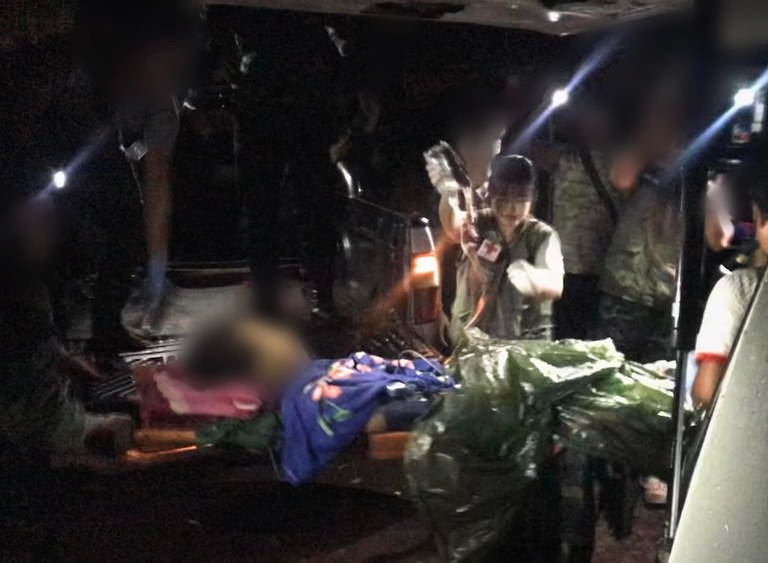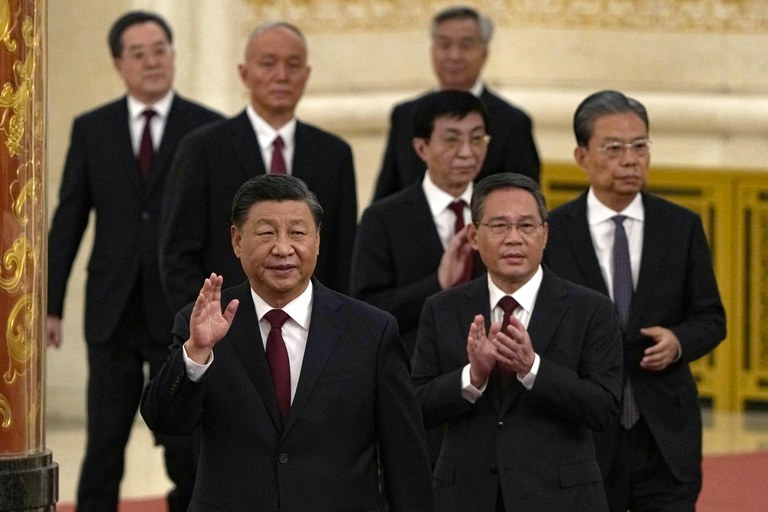Hun Sen threatens to dissolve Candlelight Party over connection to Sam Rainsy
Cambodian Prime Minister Hun Sen on Wednesday threatened to dissolve the opposition Candlelight Party if it does not clarify its stand on alleged insulting comments about King Norodom Sihamoni by exiled opposition leader Sam Rainsy. Sam Rainsy, co-founder of the now banned opposition Cambodia National Rescue Party, or CNRP, fled to France in 2015 to avoid arrest for various charges. On Monday, he posted a comment on Facebook that in 2005, Hun Sen forced the king to support a “treasonous act” – a reference to signing a border treaty with Vietnam – otherwise he would abolish monarchy. Sam Rainsy also blamed Hun Sen for using the king to shield his dictatorship. “The king today has no national conscience, not even a little,” Sam Rainsy said in the video. “After Hun Sen, the king of Cambodia betrayed the nation, because we supplemented others, betrayed the nation completely, because we cut off Khmer territory to foreigners.” On Wedneday, Hun Sen responded by demanding the Candlelight Party make its stance on Sam Rainsy clear. “Is Sam Rainsy right or wrong? I want the Candlelight Party to clarify its stand on Sam Rainsy’s statement claiming the King has no conscience. The party’s leaders need to clarify before our compatriots,” Hun Sen told a crowd at a public gathering in Kampong Chhnang province. Hun Sen, who has ruled Cambodia for nearly four decades, also urged party activists to join his ruling party, saying the Candlelight Party is at risk of being dissolved. In 2017, Cambodia’s Supreme Court dissolved the CNRP, a move that allowed Hun Sen’s ruling Cambodian People’s Party to capture every seat in the National Assembly in 2018 general elections. “It isn’t a small story, and [it’s] not a joke,” Hun Sen said. “The Candlelight Party members must immediately defect to avoid any problem [because Sam Rainsy’s supporters in the party] want to topple the government and monarchy.” On Tuesday, Cambodia’s Ministry of Justice alleged that Sam Rainsy had seriously insulted the king and ordered Phnom Penh Municipal Court to take immediate and strict legal action against him, though he has been sentenced to life in prison and permanently barred from engaging in politics. Hun Sen recently tried to convince party activists to condemn Sam Rainsy for supposedly insulting the king, calling on party vice presidents Thach Setha and Son Chhay to issue a statement. The prime minister also said he learned of a phone conversation between CNRP co-vice president Eng Chhai Eang and Candlelight Party officials about setting up the party’s network in Ratanakiri province. The prime minister told the crowd that political parties can’t work with “convicts” in accordance with the law. “With this, I want to tell you [the Candlelight Party] that you are facing any issue for yourself, so what you should do is to clarify your stand over Sam Rainsy’s comment. Is it right or wrong? I want an affirmation from you,” said Hun Sen. He went on to say that he has a problem with the Candlelight Party because the party was founded by Sam Rainsy. Senior Candlelight Party officials said they have no connection to Sam Rainsy. Thach Setha, who also serves as the party’s spokesman, said the Candlelight Party acted in accordance with the law and has a leadership structure that has nothing to do with Sam Rainsy. He said the party would issue a statement on its stand, but would not condemn Sam Rainsy as a person. “We work independently, we have full sovereignty of our party, we do not accept orders from anyone,” Thach Setha said. “We will make a statement but not name a specific person, and [condemn] all of those who insult the king. Those who abuse the constitution, we will also condemn. We fight to protect Cambodia and the throne.” Political analyst Em Sovannara said the country’s leaders should not compromise national interest with political conflict, and that Cambodia has no law prohibiting citizens or politicians from talking to “convicts.” “Yes, if we talk about communication, it is not illegal,” he said. “Any person has the right to communicate, the accused, the convict or the prisoner. The politician has the right to communicate.” Translated by Samean Yun for RFA Khmer. Written in English by Roseanne Gerin.






